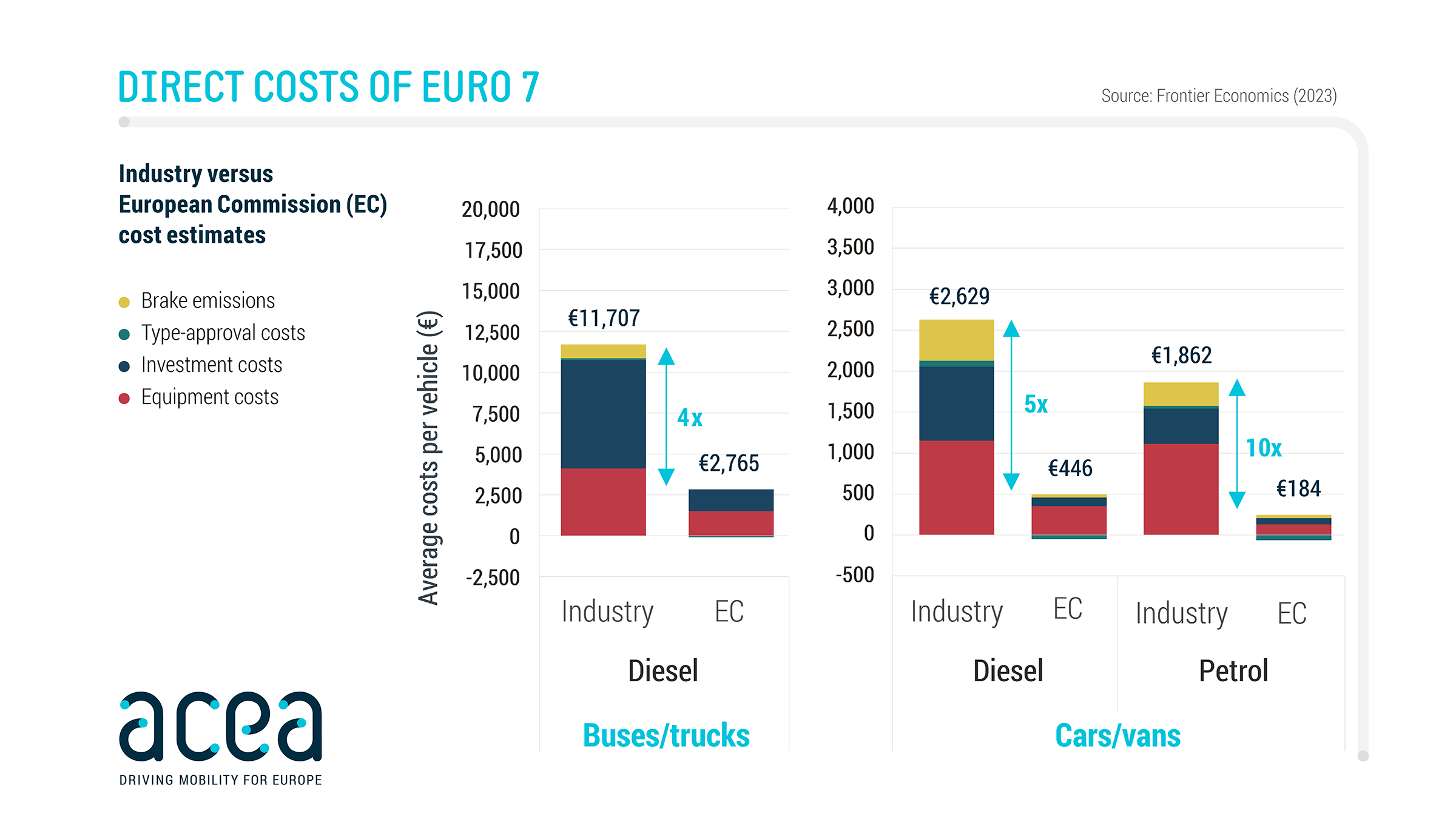
ACEA: Euro 7 ruling to cost up to 2 600 euros per car

Frontiers Economics calculated that costs per car or van could rise significantly more than initially outlined. /ACEA
The lobby organisation for car manufacturers ACEA is flashing the lights again on the proposed Euro 7 rules, which are considered unnecessar


Comments
Ready to join the conversation?
You must be an active subscriber to leave a comment.
Subscribe Today